Sadly, academic freedom isn’t a right guaranteed everywhere. Scholars and academics around the world are routinely threatened, removed from their positions, beaten, and even driven into exile for their opinions and publications. Even here in the U.S., where freedom of speech is a fundamental right guaranteed by our Constitution, there can be dire consequences for academics who espouse viewpoints that are different or controversial. Jobs can be lost, careers ruined, and in some extreme cases, the persecution may result in death threats or murder. We’d like to think of our nation as an enlightened one where multiple viewpoints can coexist, but the reality is that many professors, academics, and intellectuals are silenced here for their views just as they are in other parts of the world. Learn more about just a few of the American academics who have seen everything from death threats to imprisonment for daring to have different points of view.
-
Chandler Davis:
After receiving his doctorate in mathematics from Harvard in 1950, mathematician and professor Chandler Davis thought he would enjoy a fruitful, though perhaps uneventful, career in academia. Unfortunately, that wasn’t to be. Davis came from a politically radical family and following in his father’s footsteps, Davis joined the Communist Party of America, though he never actually took part in any of the party activities and soon lapsed on his membership in the wake of WWII. Regardless, this association resulted in Davis coming under the scrutiny of the House Unamerican Activities Committee along with two other professors at the University of Michigan, Mark Nickerson and Clement Markert. Davis refused to cooperate with the investigation and was not only dismissed from his position but sentenced to a six-month prison term. While Davis would use his time incarcerated to complete a research paper, the experience soured him on American academia and he has lived in Canada since 1960. In 1991, he and his colleagues started the Davis, Markert, Nickerson Lecture on Academic and Intellectual Freedom, one positive outcome of a shameful episode in American history.
-
Frances Fox Piven:
Frances Fox Piven is a professor of political science and sociology at The Graduate Center, City University of New York and has been an outspoken activist throughout her career, opposing the Vietnam War, educating voters, supporting unions, and fighting for those who are disenfranchised. Her political views have caused a fair amount of controversy and her writings on welfare, the poor, rebellious social moments, the American electoral process, and the Bush administration have resulted in a fair amount of hateful speech being directed toward her in recent years. Much of the hate stems from conservative commentator Glenn Beck, who has accused Piven of trying to destroy the economy and incite violence, words that motivated many of his less civil fans to harass the 78-year-old with a number of threatening emails, letters, and calls, some calling for her death. Due to these threats, guards were posted outside of her classroom and the FBI is investigating the origin of the hateful communications. Piven doesn’t seem intimidated, however, stating that she sees this as a chance to encourage people like Beck to “practice journalism more responsibly.”
-
Dana L. Cloud:
An associate professor at the University of Texas at Austin, Dana L. Cloud’s research into feminism, Marxism, and social movements made her a target of conservative writer David Horowitz, who in 2006 included her in his book called The Professors: The 101 Most Dangerous Academics in America. Horowitz accused Cloud of being an “anti-American radical” who supports the propaganda of the Saddam regime and brings her own, presumably dangerous, political views into the classroom. Words like these are rarely without consequence, and in the years since Cloud has seen numerous letters sent to the university calling for her dismissal, as well as threats of physical violence against her and her family. Cloud has spoken out publicly against Horowitz’s claims (even confronting him personally at an event in 2009), and there seems little evidence that she’s dangerous, but his accusations have nonetheless left her and others whom he named in his book to deal with serious threats, damage to their reputations, and potential harm to their careers.
-
Ward Churchill:
Ward Churchill is perhaps one of the most hated and controversial professors in the United States. In 2005, an essay Churchill wrote four years prior received national attention because of his assertion that the attacks on September 11 were the unavoidable consequence of unlawful and improper U.S. foreign policies. As a result of these incendiary comments, Churchill received more than 100 death threats and the University of Colorado began investigating Churchill for research misconduct. The result? Churchill was fired in 2007. Believing he was fired for the ideas he had published rather than his academic misconduct (dismissal is not the usual punishment for low-level research misconduct at the University of Colorado), Churchill filed a lawsuit against the university for wrongful termination. The court found that Churchill was indeed wrongly fired, but the battle hasn’t ended yet and is headed to the Colorado Supreme Court to determine whether the university has immunity from lawsuits like the one filed by Churchill.
-
Sami Al-Arian:
Born in Kuwait and raised in Egypt, Dr. Sami Al-Arian immigrated to the U.S. in 1975, eventually obtaining his Ph.D. in computer engineering from North Carolina State University in 1986. The son of Palestinian parents, Al-Arian founded the Islamic Committee for Palestine while he was teaching at the University of South Florida, which would be the beginning of his troubles with the law, as Al-Arian took a staunch anti-Israel position and supported a variety of Islamic causes. This involvement later caused former Attorney General John Ashcroft to call him “the most dangerous man in the world,” alleging that Al-Arian played a major role in funding, managing, and supervising terrorist organizations. Al-Arian was fired from his position at USF, indicted by the Department of Justice, and put in jail. And there he sits, to this day. Despite the constitutional right to a speedy trial, Al-Arian spent more than two years in solitary confinement waiting to hear the evidence against him, in conditions so questionable that Amnesty International called for an investigation. When he finally received a trial, a jury found Al-Arian innocent on eight of the charges against him and hung on the rest, with only one juror believing him guilty. The government, heavily invested in the case, decided to re-try him, offering a plea bargain if he would agree to leave the country and admit his guilt. Al-Arian agreed, but instead of the deal he was promised, he was sentenced to another 57 months in jail, during which he was called to testify against other accused terrorists, a violation of his plea bargain. Each refusal has caused Al-Arian to be held in contempt and resentenced to more time in prison, and he is still under house arrest. Whether Al-Arian is truly guilty is up for debate, but what is clear is that being on the wrong side of a political issue can land you in serious trouble, even in the U.S.
-
J. Robert Oppenheimer:
Most of us know Oppenheimer as a brilliant theoretical physicist who helped develop the first atomic weapons and made amazing discoveries in the fields of quantum mechanics. While he is often remembered for his achievements today, during his lifetime Oppenheimer was much more of a politically divisive individual. Like many other young intellectuals in his day, Oppenheimer supported many progressive policies that were to get him in trouble during the paranoia of the McCarthy era. His wife and a number of his close friends and colleagues were members of the Communist Party, though he himself was not an official member of the party. During the development of the atomic bomb, Oppenheimer was under close watch by the FBI (his phone tapped and mail opened), but it wasn’t until later that he would feel the full wrath of the investigation as the result of powerful political enemies who claimed to have evidence of his communist ties. The head of the Joint Atomic Energy Committee even advised J. Edgar Hoover that Oppenheimer was a Soviet agent. In 1953, Oppenheimer’s security clearance was revoked despite never being dishonest about his left-leaning views and the Communist connections of his peers. An extensive analysis of KGB archives in 2009 found that Oppenheimer has never been involved in espionage for the Soviets, despite efforts to recruit him, and in fact had removed several people from the Manhattan Project with Soviet sympathies.
-
Tsien Hsue-shen:
Tsien Hsue-shen is another academic working in America who met with some serious consequences during the McCarthy Era. During the 1940s Tsien helped to found the Jet Propulsion Lab at Caltech, making significant contributions to the missile and space programs in the U.S. through his work there. Unfortunately, the Chinese-born Tsien would come under suspicion of having Communist ties when he applied for naturalization in 1950, and he would be stripped of his security clearance, a penalty that made him unable to continue his career in the United States. As a result, Tsien decided to head back to his native China in order to find work, but with China now under communist leadership, U.S. government officials decided to detain Tsien on Terminal Island, imprisoning him for more than five years while the U.S. and China negotiated his release. Despite no substantial evidence of communist ties and the support of his colleagues, Tsien was forced to return to China in 1955 in exchange for American POWs captured during the Korean War, a move that his friend and attorney Grant Cooper called “one of the great tragedies of this century,” as his genius would be used to benefit the now Communist China, for whom he developed a number of ballistic missiles and long-range space rockets.
-
Angela Davis:
While academia is often accused of being too liberal, academics who lean a little too far to the left, like Angela Davis, can find their careers in jeopardy. An activist, radical, and scholar, Davis led the Communist Party and the Black Panthers during the tumultuous ’60s and ’70s, and was widely known as a radical feminist and activist for civil rights. Urged on by California Governor Ronald Reagan, the University of California fired Davis from her position at the school because of her membership in the Communist Party, an unlawful move that caused the UCLA regents to be censured by the American Association of University Professors. A California court agreed, stating that her political affiliations could not serve as a basis for her dismissal and she was reinstated at UCLA, much to the chagrin of the board. The board would again attack Davis for using “inflammatory language” in 1970. Davis had little time to retaliate, as things were about to get a lot worse for her. She would soon find herself on the FBI’s “Ten Most Wanted” list and would be arrested for her alleged involvement (the guns used were in her name) in a violent courtroom altercation that left six dead. In 1972, Davis was acquitted of all charges and would go on to teach at the University of California Santa Cruz and Syracuse University later in her career. Her trial would serve as the inspiration for two famous songs: “Angela” by John Lennon and Yoko Ono and “Sweet Black Angel” by the Rolling Stones.
-
Margo Ramlal-Nankoe:
Assistant professor Margo Ramlal-Nankoe was seeking tenure in Ithaca College’s sociology department, something she thought she’d easily attain given the glowing reviews by her students and colleagues. She was surprised when a small number of influential faculty members began actively campaigning against giving her tenure, as she had a strong academic and professional record. Of course, like most cases of academic persecution on this list, the reasons were largely political. Ramlal-Nankoe had spoken out against sexual harassment within the department, which probably ruffled some feathers. Yet she believes that at the heart of the campaign against her are her political views on Israel and Palestine, as she is an advocate for peace and has supported organizations and written articles on human rights violations she feels are being perpetrated by Israel. These unpopular views led to racist and sexist attacks and later an open death threat from another faculty member. Ramlal-Nankoe was told she didn’t fit into the department, was denied tenure, and that the board wanted a “native-born American.” She no longer teaches at the university.
-
Loretta Capeheart:
Free speech is a lofty ideal but one that isn’t always upheld in the United States, even in academic circles, as Loretta Capeheart would find out. Capeheart, a tenured professor at NEIU, has always been a vocal union supporter and an anti-war activist, but those issues, among others, would lead to direct conflicts with the school’s administration. In retaliation for her outspoken activism, push for minority scholars at the school, and support of student protestors, Capeheart would be denied merited awards and the appointment to chair of her department, a position to which she was elected. The university president told faculty at the school that they should be ready to “accept the consequences” of any of their actions or words, even those supposedly protected under the First Amendment. The most disturbing aspect of Capeheart’s situation? Capeheart took her case to court and after a four-year legal battle the judge ruled that NEIU was in the right, based on the legal case Garcetti v. Ceballos, which denies public employees the right to criticize their superiors. This opens up academics at institutions to being fired for a wide range of statements, further eroding the already shaky foundation of academic freedom in America.
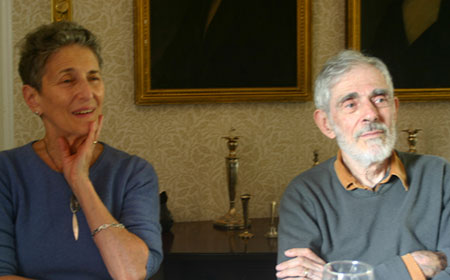
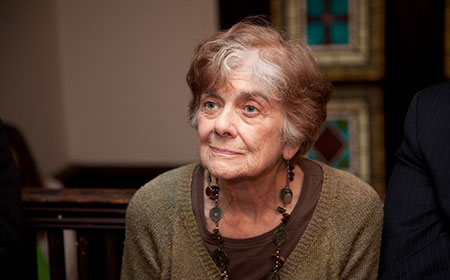

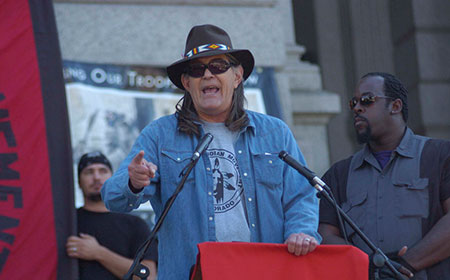
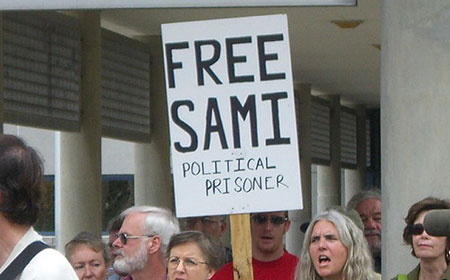

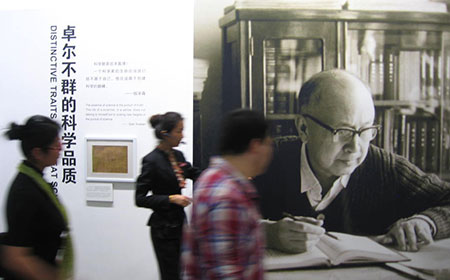
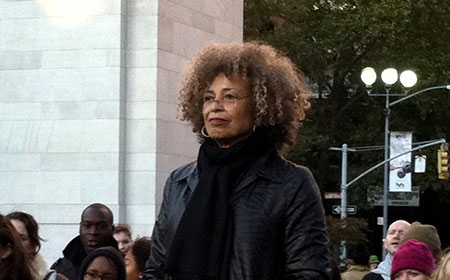

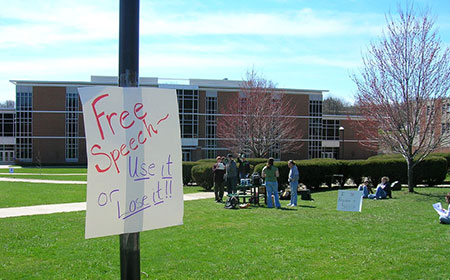



No comments:
Post a Comment